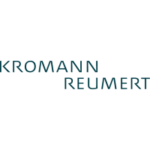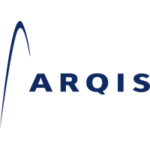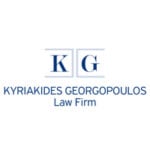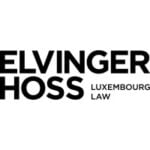-
Climate – the law governing operations that emit Greenhouse Gases (e.g. carbon trading) is addressed by Environment and Climate Change international guides, in respect of ESG: a. Is there any statutory duty to implement net zero business strategies; b. Is the use of carbon offsets to meet net zero or carbon neutral commitments regulated; c. Have there been any test cases brought against companies for undeliverable net zero strategies; d. Have there been any test cases brought against companies for their proportionate contribution to global levels of greenhouse gases (GHGs)?
a. Is there any statutory duty to implement net zero business strategies;
There is currently no explicit statutory obligation in Türkiye requiring businesses to implement net zero strategies. Türkiye ratified the Paris Agreement in October 2021 and has committed to achieving net zero emissions by 2053.
In April 2023, it submitted an updated Nationally Determined Contribution (NDC), pledging a 41% reduction in greenhouse gas (GHG) emissions from the business-as-usual scenario by 2030. While these commitments signal strong national intent, they have not yet been codified into legally binding obligations for individual companies.
At present, emissions regulation is governed primarily by the Turkish Environment Law (No. 2872) and the Regulation on Monitoring of Greenhouse Gas Emissions (O.G No. 29003, 17/05/2014). These frameworks focus on emissions reporting, verification, and compliance, but stop short of mandating a full transition to net zero.
In parallel, Türkiye has published its Long-Term Climate Strategy, establishing decarbonization targets across multiple sectors. Under the “Updating Türkiye’s Greenhouse Gas Target and Preparing the Long-Term Climate Change Strategy Project,” the revised NDC is supported by the 2024–2030 Climate Change Mitigation and Adaptation Strategy and Action Plans. These documents detail sector-specific measures aimed at reducing emissions in areas such as energy, industry, transport, and agriculture.
Türkiye is also in the process of drafting its first comprehensive Climate Law (expected 2025), which is anticipated to formalize the 2053 net zero target. The forthcoming legislation is anticipated to introduce a robust legal framework, including carbon pricing mechanisms, emissions trading systems, GHG monitoring requirements, and binding reporting obligations.
b. Is the use of carbon offsets to meet net zero or carbon neutral commitments regulated;
There is no comprehensive or binding legal framework in Türkiye specifically governing the use of carbon offsets to achieve net zero or carbon neutrality targets in either the public or private sector.
Nevertheless, entities operating in Türkiye are permitted to participate in voluntary carbon markets, including the purchase and use of internationally recognized carbon credits. These activities are not expressly regulated at the national level, although they remain subject to overarching principles of environmental law and, where applicable, financial reporting obligations.
Significant change is anticipated with the introduction of the draft Climate Law, which proposes a comprehensive regulatory framework for carbon offsetting and is intended to enable the responsible use of carbon offsets as a legitimate tool for contributing toward Türkiye’s 2053 net zero emissions goal.
The draft law envisions the establishment of a national system for the generation, certification, verification, and tracking of carbon credits. It aims to incorporate carbon offsets into both compliance mechanisms -notably the forthcoming emissions trading system (ETS)- and voluntary climate commitments by public and private actors.
Key features of the proposed framework include the adoption of standardized methodologies, independent verification procedures, and the creation of a centralized national registry to track the issuance, transfer, and retirement of carbon credits.
c. Have there been any test cases brought against companies for undeliverable net zero strategies;
There have been no publicly reported or adjudicated test cases in Türkiye specifically brought against companies for undeliverable net zero strategies or misleading climate commitments.
While globally there is a growing trend of litigation targeting “greenwashing” and failures to deliver on net zero pledges, Türkiye’s legal and regulatory environment remains in the early stages of addressing such claims through judicial or administrative mechanisms.
However, this legal gap may begin to close with the upcoming Climate Law, which introduces binding obligations related to emissions reporting, offset verification, and climate-related disclosures.
In parallel, the recently adopted Turkish Sustainability Reporting Standards, which came into force on January 1, 2024 (TSRS) introduces mandatory sustainability reporting that will require companies to publicly disclose their climate targets and transition plans, thereby increasing scrutiny over the credibility of such commitments.
In the absence of relevant case law, Turkish companies remain subject to general provisions under consumer protection, advertising, and competition law, which may apply to deceptive environmental claims, though these have not yet been tested in court in the context of undelivered net zero strategies.
d. Have there been any test cases brought against companies for their proportionate contribution to global levels of greenhouse gases (GHGs)?
There have been no reported judicial or administrative proceedings in Türkiye initiated against corporate entities based on their proportionate contribution to global GHG emissions. In contrast to certain foreign jurisdictions where courts have considered claims grounded in a corporation’s share of global emissions, Turkish courts have not yet addressed this form of climate-related liability.
Nevertheless, Türkiye has adopted regulatory measures that establish a foundation for corporate emissions accountability. Notably, the Regulation on Monitoring of Greenhouse Gas Emissions, imposes mandatory obligations on entities operating within designated sectors to monitor, report, and verify their carbon emissions in accordance with prescribed methodologies.
Failure to comply with these obligations may trigger administrative sanctions, including monetary penalties, as stipulated under the Environment Law No. 2872. Despite the existence of this enforcement mechanism, there is currently no publicly available data confirming the imposition of sanctions or the initiation of administrative actions in connection with non-compliance. Accordingly, while the legal framework allows for regulatory enforcement, there is a lack of precedent or transparency concerning its practical application to date.
-
Biodiversity – are new projects required to demonstrate biodiversity net gain to receive development consent?
Under current Turkish law, there is no statutory requirement obliging project developers to demonstrate biodiversity net gain as a precondition for obtaining development consent. Unlike certain jurisdictions that mandate a measurable improvement in biodiversity outcomes, Türkiye’s legal framework does not incorporate biodiversity net gain as a legally enforceable standard.
Environmental oversight of new developments is primarily governed by the Environmental Impact Assessment (EIA) Regulation (O.G No. 31907, 20 February 2022). This regulation requires developers of certain activities to undertake an EIA process prior to receiving construction or operating permits. The EIA must assess potential environmental impacts, including those affecting biodiversity, and outline measures to mitigate adverse effects.
While biodiversity is evaluated within the scope of the EIA, the legal requirement is limited to impact avoidance, minimization, and -where necessary- compensation. The concept of a “net gain” in biodiversity is not explicitly provided for within the existing regulatory regime.
Nonetheless, the EIA framework reflects general principles of environmental protection and biodiversity conservation. In practice, developers seeking to demonstrate enhanced environmental stewardship -whether due to market incentives, stakeholder expectations, or alignment with international standards may voluntarily implement biodiversity-positive measures. These outcomes, however, remain discretionary rather than compulsory under Turkish law.
-
Water – are companies required to report on water usage?
In Türkiye, there is currently no general, cross-sectoral legal obligation requiring all companies to publicly report on water usage. However, multiple sector-specific regulations and permitting regimes impose reporting and monitoring duties on businesses whose activities have environmental significance.
Pursuant to the Environmental Impact Assessment (EIA) Regulation, project developers are required to disclose detailed information concerning water abstraction, usage, and discharge as part of the permitting process. These disclosures are binding during the operational phase of the project. Similarly, under the Environmental Permit and License Regulation (O.G No. 31630, 16 October 2021), certain facilities must submit technical data on water consumption, wastewater generation, and treatment infrastructure as part of the environmental licensing process.
The Water Pollution Control Regulation (last amended in O.G No. 32046, 17 December 2022) imposes further obligations on industrial facilities discharging into receiving water bodies. It mandates permit acquisition and regular effluent monitoring. Although the regulation primarily addresses pollution control, it indirectly necessitates internal documentation of water usage for compliance purposes.
In addition, the Regulation on Control of Pollution Caused by Hazardous Substances in Water and Environment (O.G No. 26005, 26 November 2005) requires facilities using or discharging hazardous substances into water bodies to maintain detailed operational records and report water-related risks.
The Water Efficiency Regulation (O.G No. 32765, 27 December 2025) introduces conservation obligations for industrial and commercial entities, including efficiency planning and reporting requirements.
Finally, under the Turkish Sustainability Reporting Standards (TSRS), certain public interest entities are now subject to phased sustainability reporting. These standards classify water use, withdrawal, and related risks as material disclosure areas, particularly in high-impact sectors such as energy, mining, and food processing. Broader reporting requirements are expected to expand as TSRS becomes more fully implemented.
-
Forever chemicals – have there been any test cases brought against companies for product liability or pollution of the environment related to forever chemicals such as Perfluoroalkyl and Polyfluoroalkyl Substances (PFAS)?
There have been no publicly reported judicial or administrative proceedings in Türkiye brought against corporate entities for product liability or environmental pollution specifically related to “forever chemicals.” Although PFAS are increasingly recognized internationally as hazardous and persistent pollutants, Türkiye’s regulatory framework addressing such substances remains in an early stage of development.
At present, there is no case law or administrative precedent addressing PFAS-related corporate liability, nor have PFAS been the subject of public litigation or enforcement actions. Nonetheless, Türkiye’s anticipated regulatory alignment with the EU Green Deal and Chemicals Strategy for Sustainability may lead to future restrictions and liability pathways for PFAS-related contamination.
-
Circularity – a. The law governing the waste hierarchy is addressed by the Environment international guide, in respect of ESG are any duties placed on producers, distributors or retailers of products to ensure levels of recycling and / or incorporate a proportionate amount of recycled materials in product construction? b. Are any duties placed on producers, distributors or retailers of products to handle the end-of-life of the products placed on the market?
a. The law governing the waste hierarchy is addressed by the Environment international guide, in respect of ESG are any duties placed on producers, distributors or retailers of products to ensure levels of recycling and / or incorporate a proportionate amount of recycled materials in product construction?
In Türkiye, the waste hierarchy is legally established and embedded within national legislation, primarily through the Environmental Law No. 2872, the Zero Waste Regulation (O.G No. 30829, 12/07/2019), and the Waste Management Regulation (O.G No. 29314, 02/04/2015). These instruments codify the prioritization of waste prevention, reuse, recycling, energy recovery, and disposal. However, there is no general cross-sectoral obligation requiring producers, distributors, or retailers to incorporate a defined percentage of recycled materials in product manufacturing.
The Waste Management Regulation sets out core responsibilities for waste producers and holders, obliging them to manage waste in accordance with the waste hierarchy. It empowers the Ministry of Environment, Urbanization and Climate Change to establish sector-specific recovery and recycling targets, particularly for priority waste streams such as packaging, waste electrical and electronic equipment (WEEE), and batteries. While binding on collection and take-back schemes, these targets do not mandate recycled content standards in upstream product design.
Türkiye applies the principle of Extended Producer Responsibility (EPR) across several regulatory frameworks, including the Regulation on the Control of Packaging Waste (Official Gazette No. 31523, 21 June 2021), Regulation on Waste Electrical and Electronic Equipment (WEEE) (O.G No. 32055, 26 December 2022), and the Regulation on Batteries and Accumulators (O.G No. 29214,23 December 2014). These require producers and importers to finance or organize post-consumer waste collection and recycling. In the case of packaging, producers must meet annually increasing recycling quotas. However, these rules concern end-of-life waste and do not impose upstream recycled content obligations.
In the ESG context, compliance with EPR entails reporting and verification obligations, which are increasingly reflected in corporate sustainability disclosures. The recently adopted Turkish Sustainability Reporting Standards (TSRS), encourage companies to disclose circularity-related practices, including material sourcing, waste generation, and recycling efforts. While not yet mandatory, TSRS reinforces market expectations for transparency on recycled content.
In conclusion, while Türkiye mandates recovery and recycling obligations for certain producers, current legislation does not impose direct legal duties to incorporate recycled content in products.
b. Are any duties placed on producers, distributors or retailers of products to handle the end-of-life of the products placed on the market?
In Türkiye, producers, distributors, and importers of certain product categories are subject to explicit legal obligations concerning the management of products at the end-of-life (EoL) stage. These duties are primarily grounded in the principle of Extended Producer Responsibility (EPR), which is embedded in the Environmental Law (No. 2872) and implemented through a range of sector-specific regulations.
One of the most comprehensive frameworks is provided under the Regulation on the Control of Packaging Waste (O.G No. 31523,26/06/2021). This regulation obliges producers and importers of packaging materials to ensure the collection, separation, and recycling of post-consumer packaging. They must register with the Packaging Information System, meet annual recovery and recycling targets, and either establish their own recovery systems or work through authorized compliance schemes. Similar obligations are imposed under the Regulation on Waste Electrical and Electronic Equipment (WEEE), which requires producers, importers, and retailers to implement or participate in take-back systems for electrical products, ensure the proper treatment and recycling of collected waste, and report on the quantities of products placed on the market and recovered.
Further duties are outlined in the Regulation on Batteries and Accumulators, where producers must establish systems for the collection and recycling of spent batteries, provide information to consumers about safe disposal, and comply with labelling and reporting requirements. Additional EPR frameworks are in place for other product categories such as end-of-life tyres, mineral oils, and vehicles, each requiring product originators to finance or manage collection, treatment, and environmentally sound disposal operations.
Although these regulations do not yet extend EPR duties to all sectors or products, they collectively establish a clear precedent: that producers and distributors in designated sectors bear ongoing environmental and financial responsibility for the post-consumer lifecycle of the products they introduce to the market. These obligations are enforceable through administrative sanctions and are increasingly relevant for corporate ESG disclosures. The Turkish Sustainability Reporting Standards (TSRS), further reinforces the expectation that companies will report on circularity practices, including how they fulfill their responsibilities under EPR schemes.
In conclusion, Turkish law does impose clear legal duties on producers, distributors, and retailers of certain product categories to manage the end-of-life impacts of their products. These duties are primarily operationalized through EPR regulations and are gaining significance as both regulatory compliance and sustainability reporting expectations evolve.
-
Plastics – what laws are in place to deter and punish plastic pollution (e.g. producer responsibility, plastic tax or bans on certain plastic uses)?
The regulation of plastic pollution is primarily governed under Environmental Law No. 2872, which establishes the legal foundation for environmental protection, including waste prevention and management. Several sectoral regulations have been introduced to deter and penalize plastic pollution, with a particular focus on reducing single-use plastics and enforcing producer responsibility.
One of the most direct regulatory instruments is Procedures and Principles Regarding the Charging of Plastic Bags, which is effective from 1 January 2019. This regulatory instrument requires retailers to charge consumers a minimum fee per plastic bag, with revenues partially remitted to the state. The measure is designed to reduce consumption and encourage the use of sustainable alternatives.
In addition, the Regulation on the Control of Packaging Waste imposes Extended Producer Responsibility (EPR) on producers, importers, and distributors of plastic packaging. Under this regulation, obligated parties must finance or organize the collection, recycling, and recovery of packaging waste, including plastics, and report their performance annually to authorities. Non-compliance may result in administrative fines and restrictions on market access.
The Zero Waste Regulation further mandates waste segregation at source and promotes reductions in plastic usage in public institutions and large commercial entities. It forms part of Türkiye’s broader Zero Waste Strategy, led by the Ministry of Environment, Urbanization and Climate Change.
Although Türkiye does not currently impose a plastic tax or enforce blanket bans on specific plastic items such as microplastics or single-use utensils, the regulatory trajectory is moving toward tighter controls. Planned alignment with the EU Circular Economy Action Plan and Green Deal suggests future developments may include stricter prohibitions, design requirements, or tax-like instruments targeting plastic products.
In summary, Türkiye’s current legal framework combines pricing mechanisms, producer responsibility, and regulatory controls to mitigate plastic pollution, while leaving room for more stringent measures in line with international best practices.
-
Equality Diversity and Inclusion (EDI) – what legal obligations are placed on an employer to ensure equality, diversity and inclusion in the workplace?
In Türkiye, employers are subject to several binding legal obligations concerning equality, diversity, and inclusion (EDI) in the workplace, primarily grounded in the Turkish Constitution, Labour Law No. 4857, and the Law on the Human Rights and Equality Institution of Türkiye (Law No. 6701). Together, these instruments prohibit discrimination on grounds such as language, race, gender, political opinion, religion, philosophical belief, and comparable protected characteristics.
The Turkish Constitution enshrines the principle of equality before the law and places a positive obligation on the state to uphold this principle. Labour Law prohibits discrimination across all stages of the employment relationship, including recruitment, working conditions, remuneration, promotion, and termination. It further mandates equal pay for equal work and bars differential treatment on the basis of gender, including in performance evaluation and access to advancement.
Law No. 6701 extends anti-discrimination safeguards to both public and private employers and establishes the Human Rights and Equality Institution of Türkiye (HREIT) as the competent authority for investigating complaints and imposing administrative sanctions. This law addresses both direct and indirect discrimination in employment, vocational training, and labor market access.
While there is no general statutory obligation requiring employers to implement formal EDI strategies or affirmative action programs, targeted inclusion obligations do exist. For instance, private sector employers with more than 50 employees are required to employ a specified quota of disabled workers. Non-compliance is subject to administrative fines.
In conclusion, Turkish law imposes robust equality and non-discrimination obligations on employers. Although comprehensive diversity strategies are not yet mandated, the current legal framework requires employers to adopt inclusive practices and comply with substantive EDI standards.
-
Workplace welfare – the law governing health and safety at work is addressed in the Health and Safety international guide, in respect of ESG are there any legal duties on employers to treat employees fairly and with respect?
In Türkiye, legal duties concerning fair and respectful treatment of employees are embedded within the broader framework of labour and occupational health and safety law, primarily under Labour Law No. 4857, Occupational Health and Safety Law No. 6331, and the Turkish Constitution. These instruments collectively impose enforceable obligations on employers, aligning with the social dimensions of Environmental, Social, and Governance (ESG) principles.
The Turkish Constitution guarantees equality before the law and prohibits discrimination based on language, race, gender, political opinion, or similar grounds. Labour Law extends this principle into the employment relationship, mandating that employers uphold equality and prohibit differential treatment in recruitment, working conditions, wages, and termination. Additionally, it prohibits workplace harassment and obliges employers to create a working environment that respects employee dignity.
Occupational Health and Safety Law requires employers to ensure the physical and psychological welfare of employees. This includes not only protection from workplace hazards but also the obligation to prevent mobbing, bullying, and other forms of psychological abuse.
Employers must also comply with anti-discrimination obligations under Law on the Human Rights and Equality Institution of Türkiye, which provides remedies and sanctions for violations involving unfair treatment and discriminatory practices in the workplace.
In conclusion, Turkish employers are under binding legal obligations to treat employees fairly and respectfully, grounded in constitutional, labour, and equality law frameworks, with growing alignment to ESG expectations.
-
Living wage – the law governing employment rights is addressed in the Employment and Labour international guide, in respect of ESG is there a legal requirement to pay a wage that is high enough to maintain a normal standard of living?
In Türkiye, there is no statutory obligation requiring employers to pay a “living wage” as defined under international human rights frameworks. However, Labour Law No. 4857 mandates payment of a minimum wage, serving as the legal baseline for worker compensation.
The Minimum Wage Determination Commission, comprising representatives from the government, employers, and trade unions, sets the minimum wage, which is typically revised biannually, taking into account inflation, cost of living, and macroeconomic indicators.
The statutory minimum wage is uniformly binding across all sectors and employers. Paying below this threshold is unlawful and may result in administrative fines and legal liability for unpaid wages.
While the minimum wage aims to ensure basic subsistence, it does not reflect the broader ESG concept of a living wage, which considers adequate income for housing, nutrition, healthcare, education, and discretionary spending. Turkish legislation currently does not define or enforce such a benchmark.
Nevertheless, an increasing number of employers—especially multinational companies and ESG-driven supply chain participants—are beginning to implement voluntary living wage initiatives. Though not yet legally mandated, such practices may enhance corporate ESG profiles and mitigate reputational and compliance risks in the evolving sustainability landscape.
-
Human rights in the supply chain – in relation to adverse impact on human rights or the environment in the supply chain: a. Are there any statutory duties to perform due diligence; b. Have there been any test cases brought against companies?
a. Are there any statutory duties to perform due diligence;
Turkish law does not impose a general statutory obligation on companies to conduct human rights or environmental due diligence across their supply chains. However, certain legal instruments address corporate responsibilities in this area.
The Law on the Human Rights and Equality Institution of Türkiye (Law No. 6701) prohibits discrimination and mandates equal treatment in employment and service provision. The Institution has authority to investigate complaints and impose administrative sanctions for human rights violations, including those arising from business practices.
Furthermore, the recently adopted Turkish Sustainability Reporting Standards (TSRS) require qualifying companies to disclose ESG-related risks and impacts, including those linked to their value chains. Under TSRS, businesses must report on the governance, policies, and processes used to identify and manage potential human rights and environmental risks in their operations and supply chains. While TSRS does not itself impose a direct due diligence duty, it reinforces a regulatory expectation that companies address these risks proactively and transparently, in alignment with evolving international norms and stakeholder demands.
b. Have there been any test cases brought against companies?
There have been no publicly reported test cases in Türkiye brought specifically against companies for failing to conduct human rights or environmental due diligence in their supply chains. Turkish courts have not yet adjudicated cases involving corporate liability for adverse impacts occurring within supply chains, whether inside or outside the country.
This absence of case law is largely attributable to the lack of a statutory due diligence obligation under Turkish law, as well as the limited scope of corporate accountability mechanisms applicable to foreign or third-party suppliers. While general liability may arise under tort law principles or from breach of contract in isolated cases, there is no legal precedent establishing a company’s liability for human rights or environmental harm caused by entities in its supply chain, especially in the absence of direct control or contractual responsibility.
That said, companies operating in Türkiye, particularly those integrated into international value chains, may face contractual, reputational, or commercial consequences from business partners that apply stricter ESG or human rights due diligence expectations.
-
Responsibility for host communities, environment and indigenous populations – in relation to adverse impact on human rights or the environment in host communities: a. Are there any statutory duties to perform due diligence; b. Have there been any test cases brought against companies?
a. Are there any statutory duties to perform due diligence;
Türkiye does not currently impose a statutory obligation on companies to conduct ongoing human rights or environmental due diligence specifically in relation to host communities. However, certain legal instruments indirectly establish responsibilities to assess and mitigate project-related impacts.
The primary mechanism is the Environmental Impact Assessment (EIA) Regulation, which mandates an evaluation of environmental and social risks before permit issuance for qualifying projects. The EIA process requires consultation with affected communities and assessment of impacts on ecosystems, public health, and local livelihoods. However, it is project-based and procedural, rather than a continuous due diligence framework.
The Draft Climate Law introduces broader commitments to environmental and social sustainability, promoting inclusive stakeholder engagement and community resilience. While progressive in scope, the draft does not yet create legally enforceable corporate obligations equivalent to international due diligence standards.
Under Turkish law, there is no distinct legal recognition or protected status for indigenous populations, and accordingly, there are no specific statutory obligations relating to corporate due diligence for such groups. Legal protections are instead applied on a general, population-wide basis through constitutional and environmental law provisions.
b. Have there been any test cases brought against companies?
There have been no publicly reported or precedent-setting judicial decisions in Türkiye holding private companies liable for failing to conduct human rights or environmental due diligence with respect to host communities.
Legal challenges to industrial and infrastructure projects, particularly in the energy, mining, and construction sectors, have primarily focused on procedural flaws in the EIA process or violations of permitting requirements. These claims are typically directed at regulatory authorities, rather than at companies for ESG-related omissions.
In several high-profile administrative cases, civil society groups and local residents have challenged project approvals based on risks to public health, biodiversity, or cultural heritage. However, Turkish courts have not imposed direct liability on companies under tort law or adopted international soft law frameworks, such as the UN Guiding Principles on Business and Human Rights, in their reasoning.
One illustrative example is the shipbreaking sector in Aliağa, which has faced international scrutiny over environmental and labor risks. While no litigation has established corporate liability, this case highlights the emerging relevance of due diligence expectations, particularly in high-risk sectors.
-
Have the Advertising authorities required any businesses to remove adverts for unsubstantiated sustainability claims?
The Advertising Board (Reklam Kurulu) has increasingly scrutinized greenwashing practices, relying on Law No. 6502 on Consumer Protection and the Regulation on Commercial Advertising and Unfair Commercial Practices (Official Gazette No. 29232, dated 19.01.2015). These legal instruments prohibit misleading or unverifiable environmental claims in marketing.
A key development is the Guideline on Advertisements Containing Environmental Declarations (No. 328, dated 13.12.2022), which mandates that environmental claims be truthful, specific, scientifically substantiated, and not presented in a way that may mislead consumers. Generic terms like “eco-friendly” or “green” are discouraged unless supported by verifiable evidence.
Based on this framework, the Advertising Board has ordered the withdrawal or revision of advertisements in multiple sectors, including household cleaners, personal care products, and packaging, where misleading sustainability claims were identified. Companies promoting products as “biodegradable” or “environmentally safe” without adequate substantiation have been subject to corrective measures.
For example, one company was sanctioned for vague claims about its product’s environmental sensitivity without clarifying the benefit or measurement method. In another case, a clothing brand advertised water and energy savings without disclosing how these were calculated. Both were found to lack sufficient transparency, leading to consumer confusion and regulatory breach.
These enforcement actions underscore Türkiye’s growing regulatory oversight of unsubstantiated sustainability claims, signaling enhanced ESG accountability in advertising.
-
Have the Competition and Markets authorities taken action, fined or prosecuted any businesses for unsubstantiated sustainability claims relating to products or services?
The Turkish Competition Authority (Rekabet Kurumu) has not taken public enforcement action, imposed fines, or initiated prosecutions against businesses specifically for unsubstantiated sustainability claims relating to products or services.
While the Competition Authority has historically focused on anticompetitive practices such as collusion, abuse of dominance, and merger control, it has not yet issued decisions relating to greenwashing or deceptive environmental marketing.
-
Have there been any test cases brought against businesses for unsubstantiated enterprise wide sustainability commitments?
There have been no publicly reported or precedent-setting test cases in Türkiye specifically brought against businesses for unsubstantiated enterprise-wide sustainability commitments, such as claims of being “net zero by 2050,” “climate positive,” or “fully sustainable” at the corporate level. Turkish enforcement authorities, most notably the Advertising Board (Reklam Kurulu), have focused their actions on product- or service-level environmental claims, primarily under the framework of misleading advertising and consumer protection regulations.
Moreover, no civil, administrative, or criminal case law has been developed in Türkiye that challenges the truthfulness or evidentiary basis of strategic-level sustainability goals. Turkish courts and regulators have yet to apply doctrines such as misleading conduct, consumer fraud, or breach of good faith to general ESG or climate pledges made by companies.
-
Is there a statutory duty on directors to oversee environmental and social impacts?
Turkish law does not impose an explicit statutory duty on company directors to oversee environmental and social impacts as part of their fiduciary obligations. The Turkish Commercial Code (No. 6102) outlines the general responsibilities of directors, including acting in the best interest of the company, exercising loyalty and care, and managing risks prudently. However, these duties are traditionally interpreted through a financial and legal risk lens and do not expressly include sustainability-related considerations.
That said, as sustainability risks become more financially material, particularly in sectors exposed to climate transition, regulatory developments, or stakeholder scrutiny, the expectation that boards account for such risks within their strategic oversight is growing.
The introduction of the Türkiye Sürdürülebilirlik Raporlama Standartları (TSRS) marks a significant turning point as TSRS requires companies, particularly public interest entities and financial institutions, to disclose how sustainability-related risks and opportunities are governed at the board level. Under this framework, boards must explain their role in overseeing ESG matters, including how such factors are embedded in risk management, strategic planning, and organizational performance. While TSRS does not create a statutory fiduciary duty per se, it introduces a de facto expectation of ESG oversight, positioning sustainability as a core element of corporate governance and risk accountability.
These developments are likely to influence how directors’ duties are interpreted in both regulatory practice and stakeholder expectations, gradually integrating ESG oversight into the broader definition of responsible corporate leadership.
-
Have there been any test cases brought against directors for presenting misleading information on environmental and social impact?
There have been no publicly reported or precedent-setting test cases in Türkiye brought against company directors personally for presenting misleading or false information regarding environmental or social impacts. Turkish law does provide general mechanisms to hold directors accountable for breaches of duty or misrepresentation—under the Turkish Commercial Code, Capital Markets Law (No. 6362), and consumer protection laws—but these have not yet been applied in the specific context of ESG disclosures or sustainability-related misstatements.
That said, directors in Türkiye could, in principle, be held liable under the Turkish Commercial Code if they knowingly provide inaccurate information in official company reports, including financial statements and public disclosures that contain ESG data. In regulated sectors or publicly listed companies, such liability could also arise under the Capital Markets Board (CMB) regulations, particularly if misleading ESG information affects investors or market integrity.
As Türkiye moves forward with the implementation of TSRS, and as expectations around board-level accountability for sustainability disclosures increase, the risk exposure of directors may grow.
-
Are financial institutions and large or listed corporates required to report against sustainable investment criteria?
In Türkiye, financial institutions, large companies, and publicly listed entities are increasingly subject to mandatory sustainability reporting requirements, particularly under the framework of the TSRS, which came into force on January 1, 2024. These standards are aligned with the International Sustainability Standards Board (ISSB) frameworks—specifically IFRS S1 (general sustainability-related disclosures) and IFRS S2 (climate-related disclosures)—and aim to integrate sustainability factors into corporate reporting systems.
Under the TSRS framework, banks (with no condition), public interest entities, including listed companies, insurance firms, and other financial institutions (subject to some conditions), are the first group mandated to begin reporting. Reporting must address how sustainability-related risks and opportunities are identified, managed, and integrated into corporate governance, strategy, and performance.
Moreover, the Capital Markets Board of Türkiye (CMB) has previously published voluntary sustainability reporting guidelines for listed companies (“Sustainability Principles Compliance Framework”, published in the Official Gazette dated 02.10.2020), and TSRS now brings that into a mandatory, phased framework. activities, aligning Turkey’s national reporting requirements with international sustainable finance standards.
-
Is there a statutory responsibility on businesses to report on managing climate related financial risks?
As of 2024, financial institutions and large or listed companies in Türkiye are subject to evolving sustainability reporting requirements, primarily driven by the implementation of the TSRS. Introduced by the Public Oversight, Accounting and Auditing Standards Authority (KGK), TSRS are aligned with international frameworks such as the ISSB and GRI and apply initially to public interest entities, including listed companies, banks, and insurance firms.
TSRS introduces a structured reporting framework across four key areas: (i) Governance: companies must disclose their governance structures, controls, and procedures for managing sustainability and climate-related risks; (ii) Strategy: firms are expected to explain how their business strategies respond to climate-related risks and opportunities, (iii) Risk Management: entities must outline how sustainability risks are identified, assessed, and integrated into overall risk management systems, and (iv) Metrics and Targets: Companies are required to disclose relevant metrics and targets, including any sustainability risks that may impact financial performance.
While Türkiye does not yet impose a universal obligation to report specifically against sustainable investment criteria, the TSRS represents a significant step toward aligning corporate reporting with global ESG standards. Additionally, under Capital Markets Board Communiqué No. II-17.1, listed companies are encouraged to follow the Sustainability Principles Compliance Framework on a “comply or explain” basis.
In conclusion, TSRS establishes a binding obligation for certain businesses in Türkiye to report on climate-related financial risks and sustainability governance. Although currently applicable only to select regulated entities, broader implementation is expected, driven by regulatory convergence with EU sustainable finance initiatives and increasing stakeholder expectations for transparency and accountability in ESG practices.
-
Is there a statutory responsibility on businesses to report on energy consumption?
In Türkiye, businesses exceeding certain operational or energy consumption thresholds are subject to statutory obligations to report on energy use, pursuant to Law No. 5627 on Energy Efficiency. This framework applies primarily to industrial enterprises, commercial buildings, and organized industrial zones, where energy consumption surpasses defined limits set by the Ministry of Energy and Natural Resources.
The key implementing legislation, the Regulation on Increasing Efficiency in the Use of Energy Resources and Energy (O.G No. 28097,27 October 2011), imposes reporting requirements on qualifying entities. Obligated businesses must submit annual energy consumption reports, and in some cases, establish energy management units, employ certified energy managers, or conduct periodic energy audits. These requirements aim to enhance corporate accountability in resource use and support national energy efficiency targets.
The Regulation on Energy Performance of Buildings (O.G No. 27075, 5 December 2008) requires eligible buildings to obtain Energy Performance Certificates and comply with energy efficiency monitoring and disclosure obligations.
Additionally, the recently implemented TSRS reinforce transparency by requiring large and listed companies to disclose energy-related data—including consumption, reduction strategies, and efficiency measures—as part of their ESG reporting duties.
Failure to comply with these obligations may result in administrative sanctions, including monetary fines and potential restrictions on access to public support mechanisms.
-
Is there a statutory responsibility on businesses to report on EDI and / or gender pay gaps?
There is no statutory obligation in Türkiye requiring businesses to report on equality, diversity, and inclusion (EDI) metrics or gender pay gaps in a general or comprehensive manner. Turkish labour law prohibits discrimination based on gender and mandates equal pay for equal work, but it does not require companies to publicly disclose EDI data or conduct gender pay audits.
However, certain public institutions and large employers may be indirectly subject to expectations for gender equality and workforce diversity through national policies, public procurement criteria, or international frameworks to which Türkiye is a party (e.g., ILO conventions or CEDAW). Additionally, employers with more than 50 employees are legally required to employ a quota of disabled workers, and the Law on the Human Rights and Equality Institution of Türkiye prohibits workplace discrimination on various grounds, but without mandating structured reporting.
In terms of sustainability disclosure, the TSRS introduces new expectations for companies—particularly public interest entities—to report on workforce composition, diversity policies, and social performance indicators, including gender representation and equal opportunity. While TSRS does not yet mandate a gender pay gap disclosure, it supports enhanced transparency on gender and inclusion issues as part of broader ESG reporting.
-
Is there a statutory responsibility to report on modern day slavery in the supply chain?
There is no statutory responsibility in Türkiye requiring businesses to report on modern day slavery or forced labour in their supply chains. Turkish law prohibits forced labour and human trafficking under the Turkish Penal Code no. 5237 and is party to several relevant International Labour Organization (ILO) conventions, but it does not impose supply chain transparency or reporting duties similar to those found in the UK Modern Slavery Act or the EU Corporate Sustainability Due Diligence Directive.
While the Labour Law and Occupational Health and Safety Law contain provisions aimed at preventing exploitative working conditions within Türkiye, these laws do not extend to requiring companies to monitor or disclose labour practices of suppliers, whether domestic or foreign. Nor is there a mandatory human rights due diligence obligation for businesses operating in high-risk sectors like agriculture, construction, or textiles.
That said, under TSRS, certain companies—particularly public interest entities—are expected to disclose human rights risks and labour practices, including in their value chains. Although TSRS does not yet explicitly reference “modern slavery,” it introduces a framework for identifying and reporting on adverse human rights impacts, which may include exploitative labour conditions where relevant.
-
Trends and developments – Where do you see the most significant legal developments in ESG in your jurisdiction in the next 12 months? Do you expect a rise in Court disputes or enforcement actions?
Over the next 12 months, Türkiye is poised to experience significant legal developments in the ESG landscape, shaped by both internal policy reforms and external alignment with EU regulations. The most impactful advancement will likely be the adoption of the long-awaited Draft Climate Law, which will codify Türkiye’s 2053 net zero target and establish the legal basis for a national Emissions Trading System (ETS) and carbon pricing mechanisms. This will be a pivotal step toward harmonizing with the EU Emissions Trading Scheme and ensuring compatibility with the Carbon Border Adjustment Mechanism (CBAM).
In parallel, the phased implementation of the Turkish Sustainability Reporting Standards (TSRS) has already commenced and is expected to expand to broader corporate groups. TSRS mandates comprehensive disclosures on climate-related risks, sustainability governance, and environmental performance, aligning with international frameworks. These disclosures will significantly increase corporate transparency and are likely to expose companies to greater regulatory and reputational risk, particularly where greenwashing or unsubstantiated ESG claims are involved.
Moreover, Türkiye is advancing its sustainable finance agenda through the Sustainable Banking Strategic Plan published by the Banking Regulation and Supervision Agency (BDDK) and preparatory steps for a national green taxonomy in line with the EU Taxonomy Regulation. The forthcoming Turkish Green Taxonomy—expected to be finalized by the Ministry of Treasury and Finance in cooperation with financial regulators—will classify environmentally sustainable economic activities and help channel capital toward low-carbon investments. This is crucial for attracting ESG-conscious investors and aligning with the EU Sustainable Finance Disclosure Regulation (SFDR) and Corporate Sustainability Reporting Directive (CSRD).
While Türkiye has not yet seen significant ESG-related litigation, enforcement actions are expected to increase, particularly concerning non-compliance with environmental permits, deficient ESG reporting under TSRS, and project-level environmental harms. Judicial review of high-impact infrastructure approvals may expand into environmental and human rights due diligence challenges, especially in sectors such as mining, energy, and manufacturing.
In conclusion, Türkiye is entering a period of rapid ESG legal transformation. Companies operating in or exporting from Türkiye must proactively monitor developments in climate law, sustainable finance, and taxonomy frameworks to ensure compliance and resilience in a tightening regulatory environment.
Türkiye: Environmental, Social and Governance
This country-specific Q&A provides an overview of Environmental, Social and Governance laws and regulations applicable in Türkiye.
-
Climate – the law governing operations that emit Greenhouse Gases (e.g. carbon trading) is addressed by Environment and Climate Change international guides, in respect of ESG: a. Is there any statutory duty to implement net zero business strategies; b. Is the use of carbon offsets to meet net zero or carbon neutral commitments regulated; c. Have there been any test cases brought against companies for undeliverable net zero strategies; d. Have there been any test cases brought against companies for their proportionate contribution to global levels of greenhouse gases (GHGs)?
-
Biodiversity – are new projects required to demonstrate biodiversity net gain to receive development consent?
-
Water – are companies required to report on water usage?
-
Forever chemicals – have there been any test cases brought against companies for product liability or pollution of the environment related to forever chemicals such as Perfluoroalkyl and Polyfluoroalkyl Substances (PFAS)?
-
Circularity – a. The law governing the waste hierarchy is addressed by the Environment international guide, in respect of ESG are any duties placed on producers, distributors or retailers of products to ensure levels of recycling and / or incorporate a proportionate amount of recycled materials in product construction? b. Are any duties placed on producers, distributors or retailers of products to handle the end-of-life of the products placed on the market?
-
Plastics – what laws are in place to deter and punish plastic pollution (e.g. producer responsibility, plastic tax or bans on certain plastic uses)?
-
Equality Diversity and Inclusion (EDI) – what legal obligations are placed on an employer to ensure equality, diversity and inclusion in the workplace?
-
Workplace welfare – the law governing health and safety at work is addressed in the Health and Safety international guide, in respect of ESG are there any legal duties on employers to treat employees fairly and with respect?
-
Living wage – the law governing employment rights is addressed in the Employment and Labour international guide, in respect of ESG is there a legal requirement to pay a wage that is high enough to maintain a normal standard of living?
-
Human rights in the supply chain – in relation to adverse impact on human rights or the environment in the supply chain: a. Are there any statutory duties to perform due diligence; b. Have there been any test cases brought against companies?
-
Responsibility for host communities, environment and indigenous populations – in relation to adverse impact on human rights or the environment in host communities: a. Are there any statutory duties to perform due diligence; b. Have there been any test cases brought against companies?
-
Have the Advertising authorities required any businesses to remove adverts for unsubstantiated sustainability claims?
-
Have the Competition and Markets authorities taken action, fined or prosecuted any businesses for unsubstantiated sustainability claims relating to products or services?
-
Have there been any test cases brought against businesses for unsubstantiated enterprise wide sustainability commitments?
-
Is there a statutory duty on directors to oversee environmental and social impacts?
-
Have there been any test cases brought against directors for presenting misleading information on environmental and social impact?
-
Are financial institutions and large or listed corporates required to report against sustainable investment criteria?
-
Is there a statutory responsibility on businesses to report on managing climate related financial risks?
-
Is there a statutory responsibility on businesses to report on energy consumption?
-
Is there a statutory responsibility on businesses to report on EDI and / or gender pay gaps?
-
Is there a statutory responsibility to report on modern day slavery in the supply chain?
-
Trends and developments – Where do you see the most significant legal developments in ESG in your jurisdiction in the next 12 months? Do you expect a rise in Court disputes or enforcement actions?



















